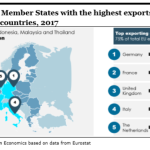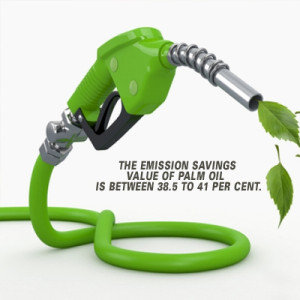EU Ambassadors Speak About the Future of Palm Oil in Europe
After the Renewable Energy Directive’s (RED) proposed palm oil ban was defeated in June, thanks to a robust campaign successfully implemented by Malaysian smallholders, the question is being asked across Malaysia – “what’s next?” After all, the EU has been pursuing palm oil regulation for almost a decade, now.
The answer has come in the surprising public statements from the EU’s representatives in Malaysia – including the Ambassadors from France, Belgium, and the U.K. The Ambassadors have focused on the EU’s plan to institute a methodology for ILUC (Indirect Land-Use Change) and HCS (High Carbon Stock). This would classify Palm Oil as a “high-risk” biofuel, resulting in its eventual phase out from the EU.
The discussions are now focusing on the European Commission that will soon start working on an EU criteria to for both an ILUC and an HCS methodology.
EU Ambassador to Malaysia Ms. Maria Castillo Fernandez indicated that the “EU must use less biofuel from all crops that have ILUC”. Is this a signal that ILUC will be targeted at palm oil?
Following the same stance as the EU Ambassador, French Ambassador to Malaysia Mr. Frédéric Laplanche stated that France was committed to non-discrimination and no ban towards palm oil, yet he also implied that ILUC will target palm oil biofuels. How can one commit to no ban on palm oil biofuels then promote a measure that will effectively phase out palm oil biofuels? It simply does not add up.
Belgian Ambassador to Malaysia Mr. Daniel Dargent tried to blur the lines. The Ambassador is focusing on process issues. The question for the palm oil sector is more focused on whether the EU is planning a new assault on palm oil, not whether Malaysia is planning a new Embassy in Brussels.
Does the Ambassador know about Malaysia’s excellent track record for protecting the environment and the measures in place to protect its biodiversity? The World Bank’s own research shows Malaysia’s forest cover is three times higher than Belgium.
Promoted by NGOs and local rapeseed industries that claim palm oil is not sustainable, the EU’s ILUC plan is a disguised discrimination against palm oil biofuel. It is a short-cut to designate palm oil as “high risk”.
The EU Ambassadors have, for the most part, been publicly supportive of palm oil – and many publicly opposed the EU Parliament’s proposed ban under the Renewable Energy Directive (RED) in recent months. It is essential, now, for the EU Ambassadors’ to confirm their support to Malaysia and its smallholders, and reject any EU ILUC plan that would treat palm oil unfairly.
The European Union is historically guided by its self-interest and its regulatory actions are driven either by special interest groups – such as domestic rapeseed farmers – or loud lobby groups, such as the NGOs. On ILUC, and the palm oil issue more widely, the EU needs to listen more, and understand more, before rushing to judgement. In the case of palm oil, omitting to listen to Malaysia and its smallholders, and failing to recognize palm oil as a truly sustainable option, would be a mistake.










Leave a Reply